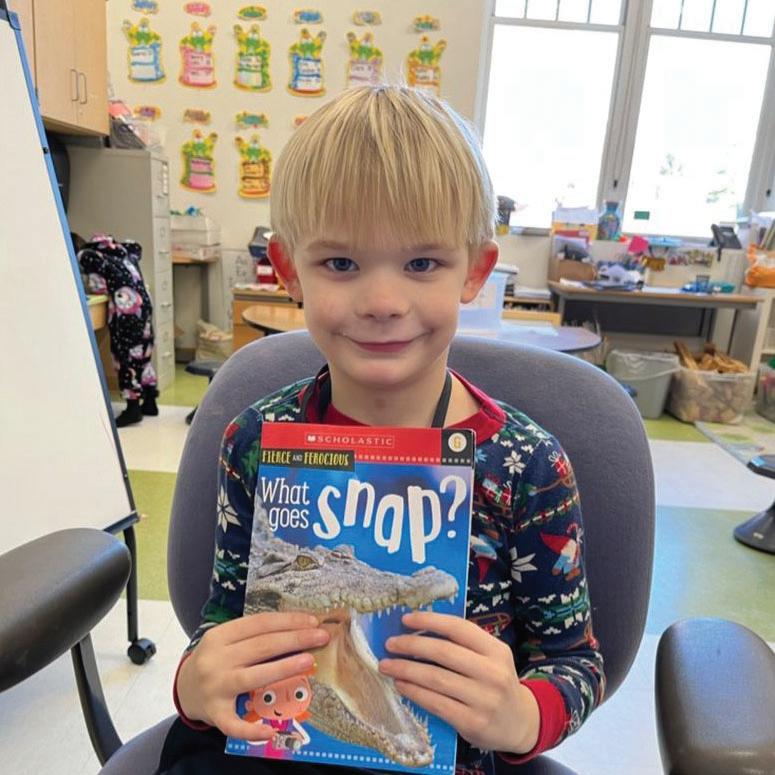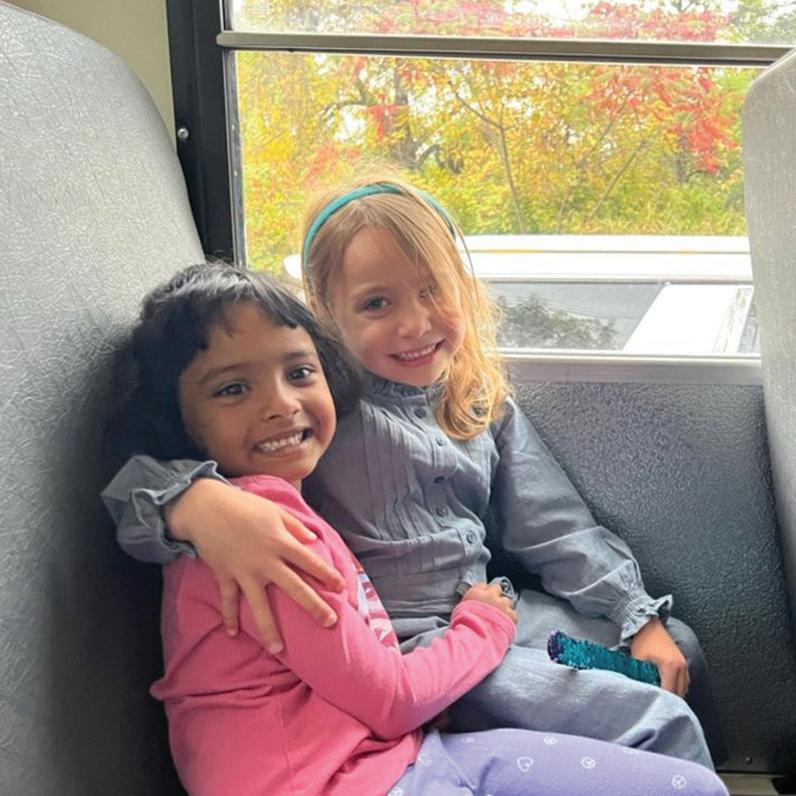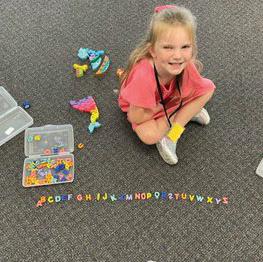Welcome to Kindergarten






Class of 2036

District Mission Statement













Work Smart. Create Experience. Embrace Growth.
District Achievement Goal


Student success will increase through rigorous curriculum design, instructional best practices, meaningful programming and purposeful environments that maximize learner autonomy and capacity to thrive.

 Mariemont Elementary y
Terrace Park Elementary
Mariemont Elementary y
Terrace Park Elementary
Dear Parents and Guardians,
This guide was prepared for the purpose of giving you pertinent information about your child’s first year in Mariemont City Schools. We hope it will answer many important questions for you as well as serve as a source of information.
It is the sincere desire of our district to make your child’s first year in school a joyful and meaningful learning experience. We realize that students and parents sometimes have a great deal of anxiety if this is their first contact with the school. This guide is full of information to answer questions and hopefully alleviate some of that anxiety.
The kindergarten teachers and the school administrative team urge you to contact us if you have any questions that apply to your child that are not answered in this guide.
Sincerely,
The Administrative and Kindergarten Staff
Ericka Simmons, Principal, Mariemont Elementary School
513-272-7400, esimmons@mariemontschools.org
Tami Croll, Principal, Terrace Park Elementary School
513-272-7700, tcroll@mariemontschools.org
Welcome to Kindergarten 3
KINDERGARTEN READINESS INDERGARTEN READINESS
Listed under each area are skills your child should be able to perform by the start of kindergarten. You can work with your child in the areas to prepare for kindergarten and beyond!
Language and Literacy
• Listens to stories read to them
• Recognizes and says simple rhymes
• Recognizes letters of the alphabet, at least those in first name, and some others
• Recognizes and writes name
• “Writes” or scribbles notes, letters, stories
• Answers questions

• Tells the difference between print and pictures
• Holds a book correctly
Social and Emotional
• Separates from parents/family without being upset
• Expresses his or her own wants and needs
• Takes turns and shares when playing with other children
Physical and Motor Development
• Dresses and meets toileting needs independently


• Uses pencils, crayons and scissors
• Gallops, jumps, hops and catches
Cognition and General Knowledge

(math, problem solving, social studies, science)
• Identifies and names numbers 0 to 9
• Counts by touching objects one at a time and saying the numbers in order

• Sorts objects by attributes such as color, size or shape



• Shows understanding of general times of day
• Observes a situation and makes predictions on what might happen next
• States solutions to simple problems
Approaches to Learning
(curiosity, initiative, creativity, follow-through)


• Tries several ways to solve a problem
• Persists with a task
• Makes detailed plans and follows through until task is completed
• Engages in pretend play with props
• Listens to adults/others and follows simple instructions
• Follows simple rules and routines
Welcome to Kindergarten 4
KINDERGARTEN REgistRation

Your child may be registered for kindergarten beginning in mid-February. Your child will be admitted if they will be five years old on or before September 30th. The original copy of your child’s birth certificate must be presented when they registers. Because many businesses and government agencies accept school records as an authoritative source for birth record, it is necessary for date of birth to be verified.
Health and dental forms will be available during spring online registration. These forms should be taken to your family physician and dentist to be completely filled out, then returned to school by August 1st. Please make sure the vision and hearing section is also completed by your doctor.
Our district health aide, Holly McCormack, RN, MSN, is available to discuss any health concerns you may have about your child’s care. She can be reached at hmccormack@mariemontschools.org or 513-272-7405.
immunization Requirements immunization for Kindergarten

All students enrolled for the first time in public or private schools in Ohio are required to be immunized as follows:
Immunization Requirements for Kindergarten in Hamilton County
No pupil shall be initially admitted to the elementary school or this district, unless such pupil has presented written evidence, satisfactory to the person in charge of admission, that he has received, or is in the process of receiving, immunization against diphtheria, whooping cough, varicella, tetanus, poliomyelitis, measles, mumps, rubella, and hepatitis B by such means of immunization as may be approved by the Department of Health pursuant to the powers granted by 3313.671 of the Ohio Revised Code.
For the purpose of compliance with these resolutions, there are approved minimum immunizations, which you can find on the school district website > Parents > Student Health Services > Medical Requirements and Forms.
Welcome to Kindergarten 5
frequently asked questions asked questions
Do all kindergarten students go to the first day of school or do they phase in similar to preschool?
Your child will be involved in a phase-in process when the school year begins. You will be notified of the exact day on which your child will begin.
What do I do if my child is late to school or sick?

The kindergarten child should learn that school is important and should be encouraged to attend regularly and punctually. When it is necessary that a child is absent from school or if your child is to be late, please call or e-mail the school by 8:45 a.m. and inform the secretary of your child’s absence and the reason for the absence. Your child should be fever free for 24 hours before returning to school. In general, it is advisable to ask your doctor to recommend re-admission after a communicable disease.
How does lunch work?
Students have a combined lunch and recess time. At the beginning of each day, students inform their teacher if they are buying lunch, packing or going home. If students go home, please send in a note and your child will meet you in the main office. If your child is buying a lunch, you can send in cash or put money into your online account. School staff will assist your child in buying the lunch. There are several adults in the cafeteria to help students open packages if they are having difficulty. Two of the main products that students in grades K and 1 have difficulty with are Go-Gurts and fruit cups.
Do students have a snack time?
Yes, parents will be required to send in an individual snack for their child each day. No peanut/tree nut products are permitted. If a student does not have a snack, pretzel rods will be provided.
How do you celebrate birthdays?
For birthdays, each classroom teacher celebrates your child’s birthday in a fun and exciting way. We want to make the birthday child feel special through songs, books and poems. The birthday child is encouraged to bring in a special snack for themselves to enjoy during snack time.

Do I have to send in an extra set of clothes in case of an accident?
No, it is not necessary to send in extra clothes. In the event of an accident, the school will provide students with extra clothes.
What supplies do I need to buy for my child?
A supply list will be published on the district website (parents > school supply lists) during the summer. Most supplies are provided by the schools but each child may be responsible for a few miscellaneous items at the beginning of the year.
What is the daily schedule?
At the open house event, you will be given a copy of your child’s daily schedule and many other pieces of information. Plan to attend the open house to find out details and sign up for volunteer events.
How can I get involved?
There are many ways to get involved at the school. The Mariemont City School District is blessed with many support organizations; PTO, Arts Association, Athletics Boosters and Kiwanis, just to name a few. Each has many opportunities to get involved with the classroom and in the community. There are many opportunities to help out in the classroom either on a regular basis or to chaperone a field trip. Information on volunteer opportunities in the classroom will be discussed at the open house and through weekly newsletters. Check the weekly PTO newsletter that will be sent to you via email for other ways to get involved with your child’s school.
How does drop off/pick up work?
You may drop off your child at 8:15 a.m. and pick up your child at 3:20 p.m. in the designated drop off/pick up areas of your child’s elementary building. Specific information will be emailed to you from the building principal. Adult patrol people and/ or safety patrol students are on duty to protect your child at street and school crossings. Teach your child to obey and respect these safety guards and to take the accepted and safe route to and from school.
Welcome to Kindergarten 6
frequently asked questions asked questions
What if my child has a playdate with a friend after school?
Please make sure to send in a note to your child’s teacher so the teacher will know where your child should go. If there is a last-minute change, please contact the school office and they will get the message to your child’s teacher. If children do not normally ride the bus, they may ride the bus home with a friend if they have a note signed by a parent or guardian stating that they are allowed to do so.
What are the big events I should attend?
There are many events throughout the year but some of the events that you may want to make arrangements to attend are open house, the Halloween walk and end-of-the-year parties. Please ask your child’s classroom teacher for details.
What costs are required throughout the year?
A fee is charged to each parent. This fee covers part of the cost of reading, phonics and math workbooks, technology use, as well as other consumable materials. This fee is payable in the fall. Please see the district website > Parents > Student Fee Schedule for more information.
Should I teach my child to count?

When your child expresses a desire to count, teach them to count objects within their realm of experience – toys, children, books, etc. Teach your child to recognize numbers through their address, a clock, etc.
Should I teach my child the alphabet?
Recent studies indicate that the child who can recognize the letters of the alphabet will also find reading easier in the first grade. Consequently, the alphabet, upper and lower case, will be emphasized during the use of reading journals, games and other media. Your child undoubtedly will benefit from additional help at home.
How can I prepare my child to get ready to read?
Read to them often and let them see you read, too. Furnish your child with many experiences of different kinds; encourage the asking of questions and answer them as well as you can; help your child speak clearly; help them to follow directions and work independently; develop a sense of responsibility and initiative in your child and provide your child with good books.
Should I teach my child to write their name?
When your child expresses the desire to write their name, teach them to print in any way that is least frustrating for the child. Often, if you force a child to write too early, muscles are not developed well enough and the child becomes frustrated. Once your child comes to kindergarten, they will learn a form of printing that is found in the reading journals and is made with a simple stroke. Do not worry if your child cannot write all of the letters in both upper and lower case forms.
If my child if left-handed, should I teach them to use their right hand?
Most children show a preference for either the right or the left hand. If your child does not show a preference, experience with pencils, crayons and scissors during the school year will help determine which hand is more comfortable to perform these tasks.

Welcome to Kindergarten 7
the KINDERGARTEN program the KINDERGARTEN program
Reading/Language Arts
The reading program used in kindergarten is comprehensive and includes listening and oral language skills, phonemic awareness, phonics, fluency at the sound, word, and sentence level, handwriting, vocabulary, and comprehension.
The kindergarten child practices phonemic awareness and phonics skills daily. Phonemic awareness activities include: rhyming words, phonemic segmentation, initial consonant identification and high-frequency words. As your child develops into an early reader, they are taught strategies to decode words fluently and make meaning of the text. Comprehension is built by studying and discussing topics from a collection of fiction and nonfiction texts, poetry, and artwork.
Writing is encouraged and developed throughout the kindergarten year. Early in the school year, the kindergarten child is provided opportunities to put ideas onto paper. In the beginning, ideas are expressed through drawing, with words dictated to an adult. As the school year progresses and the child is more comfortable with letters and sounds and has writing and the writing process modeled frequently, they begin to compose labels, sentences, personal journal entries and/or stories using knowledge of letters and sounds. This “temporary spelling,” also known as invented spelling, occurs often with a mix of conventionally spelled words and continues into the first grade school year.
Math Program
Your kindergarten child will develop number sense with hands-on experiences, utilizing a Math Workshop model. Through the use of manipulatives, your child will work on mastery of activities involving patterning, sorting, measuring, counting, comparing and problem solving. Your child will be taught numeral formation, graphing and basic math concepts. Your child will be taught to recognize simple shapes and will begin addition and subtraction.
Social Studies Program
Science Program
The kindergarten child will explore several areas of science during the school year, including life science, physical science, Earth science and the human body. Throughout the year, your child will be involved in completing simple experiments and recording data.
Social studies is taught in an integrated manner throughout the kindergarten program. Children discuss and have activities related to concepts of respect for others, caring for the school environment, similarities and differences of others and other cultures (holidays), basic map and globe skills and the economic concept of goods and services. It Is through literature, maps and globes, Weekly Reader, arts and crafts projects, daily school living and class discussions that these concepts are presented.

Welcome to Kindergarten 8
the KINDERGARTEN program KINDERGARTEN program
Learning Lab
In an effort to give each child every opportunity possible to succeed throughout not only their school careers but also the rest of their lives, we have incorporated a Learning Lab into the curriculum for grades K-6. Learning Lab will occur for 30 minutes at the same time each day for all students, so no child misses out on regular classroom instruction. Our intention and main goal for this program is to meet the individual needs of the students in our district.
Learning Labs include three platforms: specialized studies, intervention and enrichment. Specialized studies will include students who have Individualized Education Plans (IEPs), and will focus on each child’s specific needs and goals. The intervention platform provides a concentrated focus on math and reading, and will include research-based reading and math-specific programs to strengthen skills. The enrichment platform will be an extension of the curriculum, executed in a dynamic, complementary approach.
Utilizing the results from the reading and math assessments conducted during your child’s phase-in day, reading level and their performance on classroom activities over the first several weeks of school, teachers will be placing students into one of the three learning lab platforms in reading and math. Letters will be mailed home indicating your child’s placement. These groups are fluid and can change throughout the year depending on the needs of your child.
Technology Instruction
Technology skills are taught from kindergarten through grade 12. There are numerous skills that the kindergarten child is taught/introduced to throughout the year by the classroom teacher and school librarian.
The kindergarten child will have access to computers and iPads in the classroom and in the library. Throughout instruction, your child may use age and skill-appropriate websites and/or apps related to math and reading. Additionally, they will be involved in simple writing tasks or simple publication.
Learning Centers

The kindergarten classroom is designed with areas of “learning/choice centers.” During a specified period of time, the kindergarten child may choose their own activities from any of the centers. Learning centers in the kindergarten classroom include:
• Blocks or other constructing/building materials
• Sensory table (water/sand table, etc.)
• Art (specified mediums)
• Open or independent art
• Writing center
• Books
• Reading/language center
• Math center
• Puzzles
• Manipulatives (beads, geoboards, etc.)
• Science center
• Dance center
Other centers, which may appear for a short period of time, are theme oriented.
By using the materials in these centers, the kindergarten child also learns to coordinate the work of mind and hands, develops muscular coordination, learns to work independently and/or cooperatively and learns to appreciate their own creations and the work of others.
These centers allow students the opportunity to develop social and emotional skills. Language and reading readiness skills, as well as math and science concepts, are developed through the exploration of the materials in these areas.

Welcome to Kindergarten 9
the KINDERGARTEN program the

Reports of Progress
Parents and teachers need to develop a partnership in order to work together, understand each other’s goals and share observations that concern your child. To this end, the following procedures are observed:
• Parent communications are sent home highlighting activities and special/ upcoming events.
• Parent-teacher conferences are scheduled for each child near the end of the first quarter. Additional conferences are scheduled as needed by the teacher or at a parent’s request.

• Report cards will be available for parents on the Student Achievement Dashboard each quarter. You are encouraged to discuss your child’s progress with them. You can access the Student Achievement Dashboard through the district website by clicking on My Mariemont Portal.
• Standardized assessment information will be housed in your child’s passwordprotected site on the Student Achievement Dashboard. We will notify parents via email when new assessment data is posted.
Health and Safety
The kindergarten child will be encouraged to practice good health habits during the restroom and snack times as well as during class times regarding coughs, sneezes and runny noses. Your child also will be encouraged to engage in safe behavior in the classroom, school building and on the playground. The kindergarten child will be involved in class discussions and activities regarding strangers, making appropriate choices and what it means to be healthy.
Kindergarten Specials
The kindergarten “specials” rotation is a part of the students’ daily schedule. Kindergarten students go to art class, music class, library and gym weekly.
Music
The kindergarten child learns to enjoy and appreciate music through singing simple songs, listening to music played on the computer, CD or piano and playing simple rhythmic instruments. Your child will be introduced to basic music concepts: fast/slow (tempo), steady beat (rhythm), high/low sounds (pitch) and loud/soft sounds (volume) and they will engage in appropriately related activities.
Welcome to Kindergarten 10
the KINDERGARTEN program program


Art
Opportunities for free expression with various media occur as well as structured crafts relating to holidays or class themes. The kindergarten child engages in cutting, gluing (paper, glitter, pasta, etc.), painting (brushes, sponges, rollers, finger-paint, etc.), modeling (play dough, clay, etc.) and drawing (colored pencils, chalk, etc.) Artistic techniques and media used by illustrators are discussed throughout the kindergarten year.
Physical Education
Elementary physical educators have recognized a strong relationship between motor ability a child’s overall school performance. Gross motor skills involve the development and coordination of the body’s large muscles (legs, arms and trunk) to produce effective and controlled movements.
Library
The kindergarten child has an opportunity to visit the school library on a weekly basis. Your child will be involved in listening to stories read and learning basic technology skills. They will learn about the library, how to handle books, the difference between fiction and non-fiction and simple library routines. Your child will have an opportunity to check out books weekly.
Warriors BEyond is the Mariemont City School District’s flagship program for student opportunities offered beyond the traditional curriculum, including new enrichment experiences, travel opportunities, career exploration and service learning, giving students at all grade levels the chance to lead, reach and explore.
At the elementary level, this includes after-school enrichment opportunities in art, STEM and world languages. Not to mention author visits, COSI on Wheels, talent shows, 6th grade camp and the myriad of activities, visitors and performances your child’s tenure at elementary school will include.
And it’s never too early to start planning for the travel opportunities available to your child in junior high and high school! The 8th grade class trip to Washington, D.C. is an excellent extension of the learning they complete throughout the school year. At the high school level, there are travel abroad opportunities in world languages, service learning and global learning.
We promise to keep you informed about these and all the Warriors BEyond adventures available for your child!
Welcome to Kindergarten 11
KINDERGARTEN assessments assessments
Kindergarten Screening

Kindergarten children will be involved in a screening program this spring. The purpose of the screening is to identify a baseline of information in order to provide the most appropriate instruction and to identify students who would benefit from a summer kindergarten camp experience to help ensure a smooth transition in the fall. The screening will be completed by classroom teachers and school support personnel (i.e., reading specialists, intervention specialists, etc.)
Early Literacy/Math
The Ohio Department of Education has developed a screening instrument that must be given to all kindergarten students. The assessment includes ways for teachers to measure a child’s school readiness. Ohio’s Early Learning and Development Standards are the basis for the new assessment. It has six components: social skills (including social and emotional development and approaches towards learning), mathematics, science, social studies, language and literacy, physical well-being and motor development. Teachers can begin working on the assessment at the start of the school year and have until November 1 to complete the screening tool.
Speech and Language
Administered during the second quarter, this screening includes a brief sampling of listening, speaking, articulation of speech sounds and social conversational skills. You can help the development of your child’s speech and language skills by playing word games, giving directions of increasing difficulty, asking questions, discussing the sequence of your daily activities and exposing your child to new vocabulary through daily conversation and reading aloud to your child.
Fine Motor Screening
The purpose of the fine motor portion of the kindergarten screening in the second quarter is to determine readiness for writing letters and words and to use the tools typically used as part of the kindergarten curriculum, including:
• Observation of sitting stability and support for writing

• Observation of pencil grasp, hand strength and stability
• Assessment of pre-writing skills (ability to draw lines of different sizes and directions and cross midline)
• Assessment of fine motor control, including scissor skills, coloring and starting/stopping pencil movements with a visual target
• Documentation of which letters the child can write (if any), and if the child can write their name
Welcome to Kindergarten 12
KINDERGARTEN assessments assessments


Vision and Hearing
This screening should have been done by your physician as part of the School Health Examination Record you were given at registration and submitted before the first day of school.
Acadience
All students in kindergarten through sixth grade will be assessed using Acadience. This quick assessment is research-based and provides teachers with a reliable means of evaluating letter-naming fluency, phonemic awareness/fluency (the ability to identify sounds, or phonemes, in words), oral-reading fluency and measures of early numeracy and computation. Teachers will use the results of these assessments, along with classroom information, to help monitor your child’s progress with these important “building block” skills to reading and math. They also will use this information to help identify student strengths/needs, make instructional decisions and plan for reading intervention. The Acadience assessment will be administered by the kindergarten teachers during the phase-in days, then twice more throughout the year to measure the student’s progress.
Gross Motor
Gross motor involves the development and coordination of the body’s larger muscles (legs, arms and trunk) to produce effective and controlled movements. Gross motor development can be encouraged through skills like running, climbing, bicycling, kicking and throwing a ball. Please note that there is a large variance in an incoming kindergartener’s gross motor abilities, developmental rate and age range. Gross motor skills will be assessed during gym class during the second quarter.
MCSD Kindergarten Gross Motor Screening
• Stairs (alternates feet up and down with or without railing)
• Gallop or skip (can demonstrate smooth rhythm with either skill for 10 feet)
• Run (demonstrates functional running patterns either straight or zig zag)
• Hop on one foot five times (demonstrates skill with either right or left foot)
• Jump forward (jumps forward at least 24 inches with two-foot takeoff/landing)
• Catch 8” ball tossed directly to them from four feet (can either use hands only or trap the ball against their body)
• Kick 8” ball (kicks ball at least 10 feet forward without loss of balance)
Welcome to Kindergarten 13
school district district communications
The District Website
The district website is a great tool for accessing important information, such as calendar dates, news and superintendent communications. You also can read the weekly announcements from your school and can subscribe to have the announcements sent straight to your email inbox (more information about this will be shared at the beginning of the school year.) You can access quick links to online payment options and the Student Achievement Dashboard. Visit the district website at www.mariemontschools.org
Social Media
The district regularly uses social media outlets to disseminate information as well as post pictures and announcements. Below are the links to the social media pages for Mariemont City Schools:
District Facebook: Mariemont City Schools
District Instagram: mariemontschools
District YouTube: Mariemont City Schools
District Twitter: @MariemontSchool
Mariemont Elementary School Twitter: @mariemontelem


Terrace Park Elementary School Twitter: @terraceparkelem
Superintendent Steven Estepp Twitter: @Estepp
Weekly Newsletters
Every Wednesday a newsletter from your school PTO is sent via email with a complete listing of upcoming events. The newsletter also includes reminders, recaps and other useful information.
The school district also sends a weekly e-newsletter, called Warrior Weekly. The Warrior Weekly, keeps you up to date on district communication, announcements and support organization/community news.
SeeSaw
All district kindergarten classrooms use SeeSaw as the online platform for communicating with parents/guardians and sharing student work. Through SeeSaw, students can “show what they know” using photos, videos, drawings, text, PDFs and links. Parents/Guardians can easily access what the students have been working on and learning in the classroom and leave comments, likes and messages for their students and/or teachers. Your will receive more information on accessing and using SeeSaw as the school year begins.
Welcome to Kindergarten 14
school district school communications
Calamity Day Notification
If school is affected due to bad weather, the Mariemont City School District operates on either a two-hour delay or a complete school closure for the day. Bus service will still be operational if we are on a delay.
In an effort to disseminate a calamity day announcement in a timely manner, the first step in the notification process will be electronic with an email to all parents and staff. Notifications will be posted on the district Facebook page and Twitter feed. On the website, an alert will be posted as a blue bar across the top of each page and a story will be posted on the District News page. Local media outlets will then be notified. Once the media is notified, there is usually a 10-15 minute delay before they process and announce the notification, so please make the Facebook page, Twitter feed, website and/or email your first stop when checking for school closures.
IN CASE OF EARLY RELEASE DUE TO INCLEMENT WEATHER, parents of students
in grades K-6 will be contacted via telephone prior to student dismissal. We will not be able to send a child home without parent confirmation. For students in grades 7-12, parents will not be contacted via phone prior to student release; although we will send an email and post the announcement on the Facebook and Twitter pages for all grade levels. Bus service will be operational for all students who regularly utilize this service.
Emergency Alert Notification
Mariemont City Schools uses a notification program called SchoolMessenger, however it is important to note that SchoolMessenger will only be used in the case of an emergency. The SchoolMessenger program utilizes phone, email and/or text to send notifications instantaneously, thus increasing the likelihood that our parents and staff receive crucial information in a timely manner. We know that in a time of crisis, communication is key. You will receive information about how to opt in to receiving these messages in the beginning of the school year.
We look forward to sharing the kindergarten experience with you and your child. If we can be of any assistance, please do not hesitate to contact us.

Mariemont Elementary

6750 Wooster Pike, Cincinnati, OH 45227 513-272-7400
Terrace Park Elementary
723 Elm Ave., Terrace Park, OH 45174 513-272-7700
Welcome to Kindergarten 15

contact information Mariemont City School District 2 Warrior Way Cincinnati, Ohio 45227 Phone: 513-272-7500 Fax: 513-527-3436 Mariemont High School 1 Warrior Way Cincinnati, Ohio 45227 Phone: 513-272-7600 Fax: 513-527-5991 Mariemont Junior High School 3847 Southern Avenue Cincinnati, Ohio 45227 Phone: 513-272-7300 Mariemont Elementary School 6750 Wooster Pike Cincinnati, Ohio 45227 Phone: 513-272-7400 Fax: 513-527-3411 Terrace Park Elementary School 723 Elm Avenue Terrace Park, Ohio 45174 Phone: 513-272-7700 Fax: 513-831-1249 www.mariemontschools.org























 Mariemont Elementary y
Terrace Park Elementary
Mariemont Elementary y
Terrace Park Elementary
































